On May 21, 2023 Tsinghua PBCSF Global Finance Forum Plenary Session VII "Pension Finance Development in the Age of Digital Intelligence" was held. Representatives from regulators and experts from main insurers and insurtech startups gathered to share insights. Dr. Wei Chenyang, Associate Dean of the Tsinghua University Fintech Research Institute, and Director of the China Insurance and Pension Research Center chaired the plenary session.
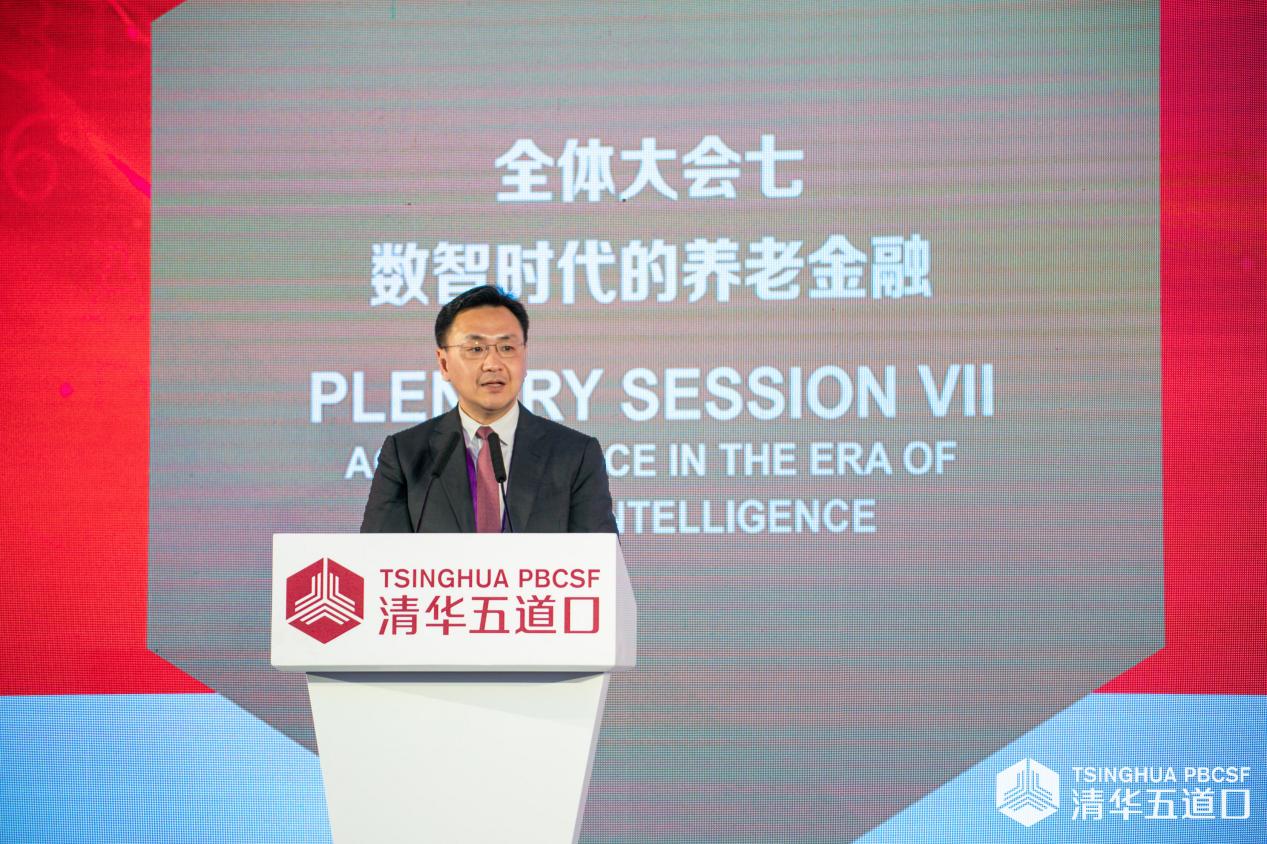
[Wei, Chenyang]
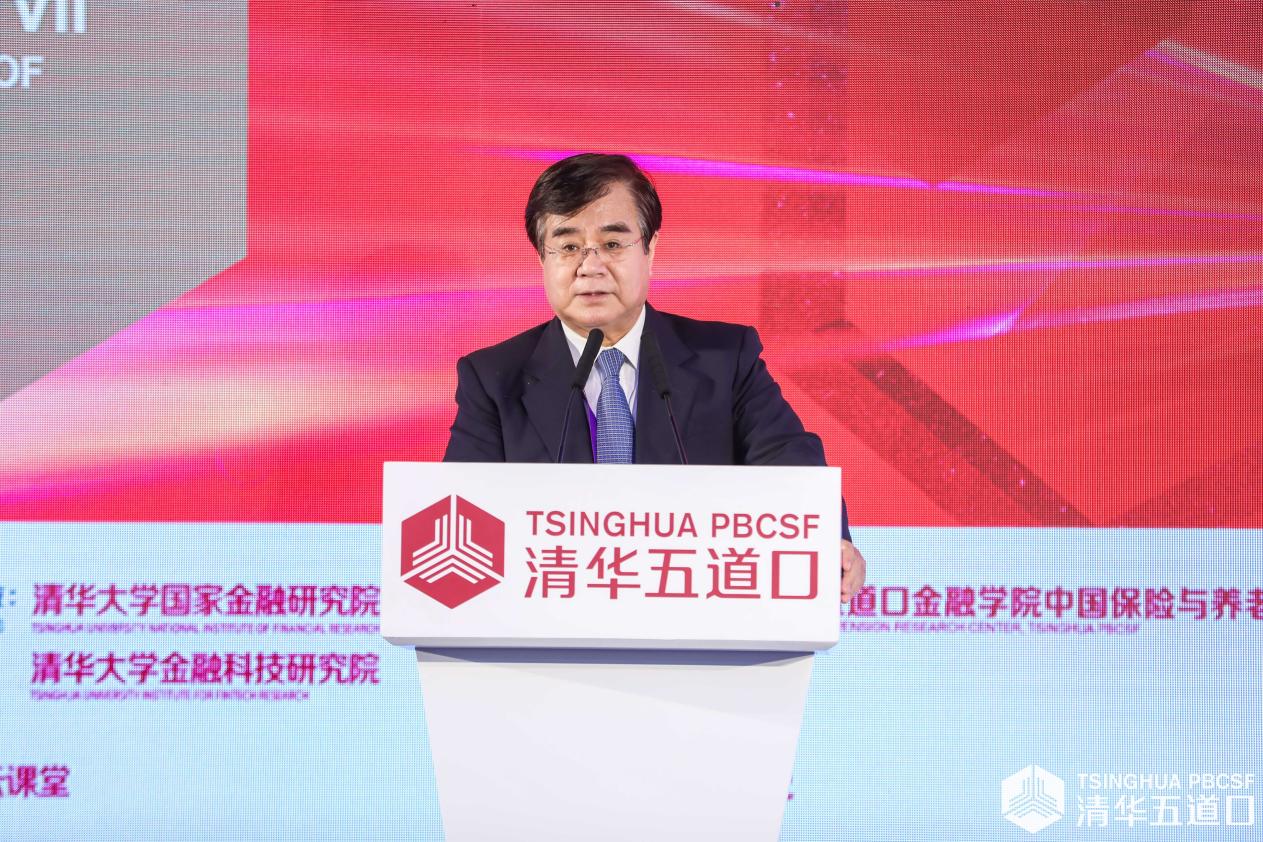
[Zhou, Yanli].
Zhou Yanli, member of the 13th National Committee of the Chinese People's Political Consultative Conference(CPPCC), and former Deputy Secretary of the Party Committee and Vice Chairman of the former China Insurance Regulatory Commission (CIRC), presented the opening keynote speech titled "Empowering a new era of pension finance with technology". Zhou Yanli emphasized on the great significance of the "implementation measures for personal pension plans" in promoting the development of the pension finance as third pillar and the important contribution of commercial pension insurance in China.
By the end of 2022, China's pension annuity insurance and endowment insurance, had accumulated reserve funds of over 6.3 trillion Yuan. Exclusive commercial pension insurance had achieved a cumulative premium of over 5 billion Yuan. Four pension insurance companies had successively engaged in commercial pension business. The application of digital technology including digital pension finance product innovation, digital pension financial services and digital pension finance operation empowers the enhancement and efficiency of the third pillar of pension finance.
Multiple measures were advocated by Mr. Zhou to support the high-quality development of a more intelligent pension finance system: 1. future development in regulation are needed to further promote the third pillar pension insurance to achieve high-quality economic and social development: 2. market participants should provide more adaptive financial products, increasing product yields, improving the suitability of pension products and establishing the mechanism of a base-line asset allocation system; 3. the development of pension finance needs to utilize digital technology applications. The regulatory authorities should establish a unified information platform for the industry, advocate the integration of the management platforms across banking, insurance, mutual fund and other financial sectors, and actively carry out a system integrated with the Ministry of Human Resources and Social Security of the People's Republic of China, Inland Revenue Department and the participants; 4. cross-department coordination was called for to strengthen synergy and cooperation in order to build a financial service pension protection ecosystem. The regulatory authorities should guide all kinds of financial institutions including commercial banks, insurance companies, wealth management companies, insurance asset management companies and public funds to identify their functional roles. The industry as a whole should promote the education of pension finance and associated fundamental financial education.
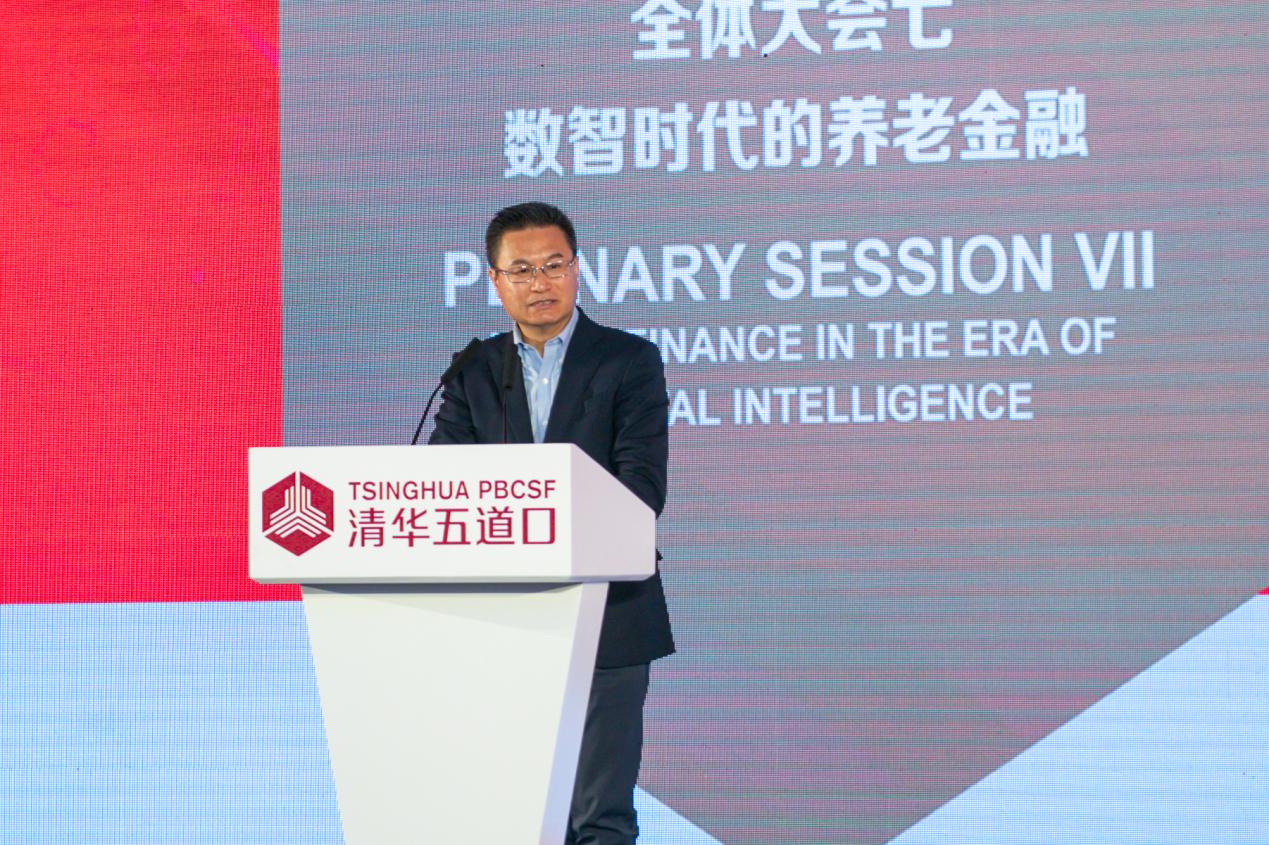
[Cao Deyun]
Cao Deyun, Executive Vice President and Secretary-General of the Insurance Asset Management Association of China, delivered a keynote speech titled "Working together to promote high quality development of personal pensions". Mr. Cao pointed out that some challenges and difficulties have emerged since the pilot implementation of the personal pension plan system.
The pilot results showed a funnel-shaped pattern characterized by "low coverage and low participation rates" and "uneven product supply, limited purchase channels, and weak public willingness to participate." The operational mechanisms of the personal pension plan system are unbalanced, and the advantages of the pilot program are limited.
To promote the long-term win-win development of the personal pension plan system, Cao made several proposals: 1. the regulatory authorities should actively explore and promote the integration of the three pillars of the pension insurance system, to achieve convergence in funds, accounts and services; 2. the regulations should maintain sales appropriateness and urge financial institutions to implement the concept of the "Implementation Measures for Personal Pensions Plans" document; 3. the market should actively promote pension financial products innovation; 4. Cao suggested creating an investment management model with pension characteristics, suggesting that certain preferences be given in the system level in terms of accruing capital factors and calculating the regulatory ratio of equity investment, and appropriate policy support may be considered for pension funds to invest in the medical and health industry; 5. the regulatory authorities should encourage enterprises to engage in a more proactive role in personal pension plans; 6. the Insurance Asset Management Association of China should promote the construction of the personal pension market. It is suggested that financial regulatory authorities authorize the association to establish a base for investor education in pension finance. In the future, leveraging this education base, more long-term, inclusive, and comprehensive pension finance education and promotion activities can be conducted.
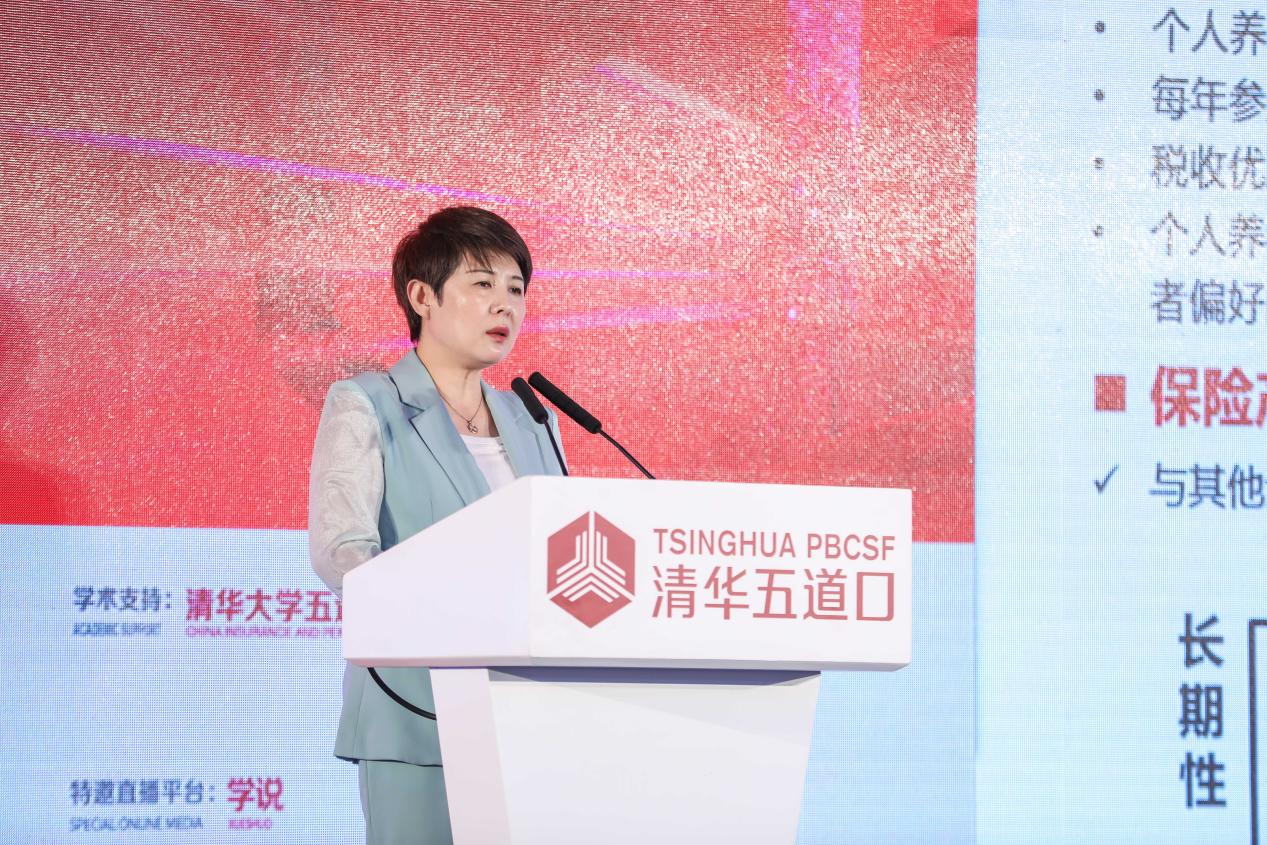
[Wang Yugai]
Wang Yugai, General Manager of Great Wall Life Insurance Co. LTD., delivered a keynote speech titled "Family risk protection empowering pension finance". Wang Yugai proposed that pension finance need to be expanded from a narrow scheme to a broader one. The focus should be shifted from individual risk protection and service needs, to family-level wealth security such as debt risk, inheritance risk, corporate debt, tax risk and other needs. Commercial insurance has unique advantages in constructing the third pillar pension finance, as insurance products have the characteristics of long-term nature, legal attributes, and risk-transfer features. Based on the insights into four categories of risks, namely basic risks, pension risks, wealth preservation and appreciation and wealth security, an "insurance + service" product system could be established to enhance customer management capabilities.
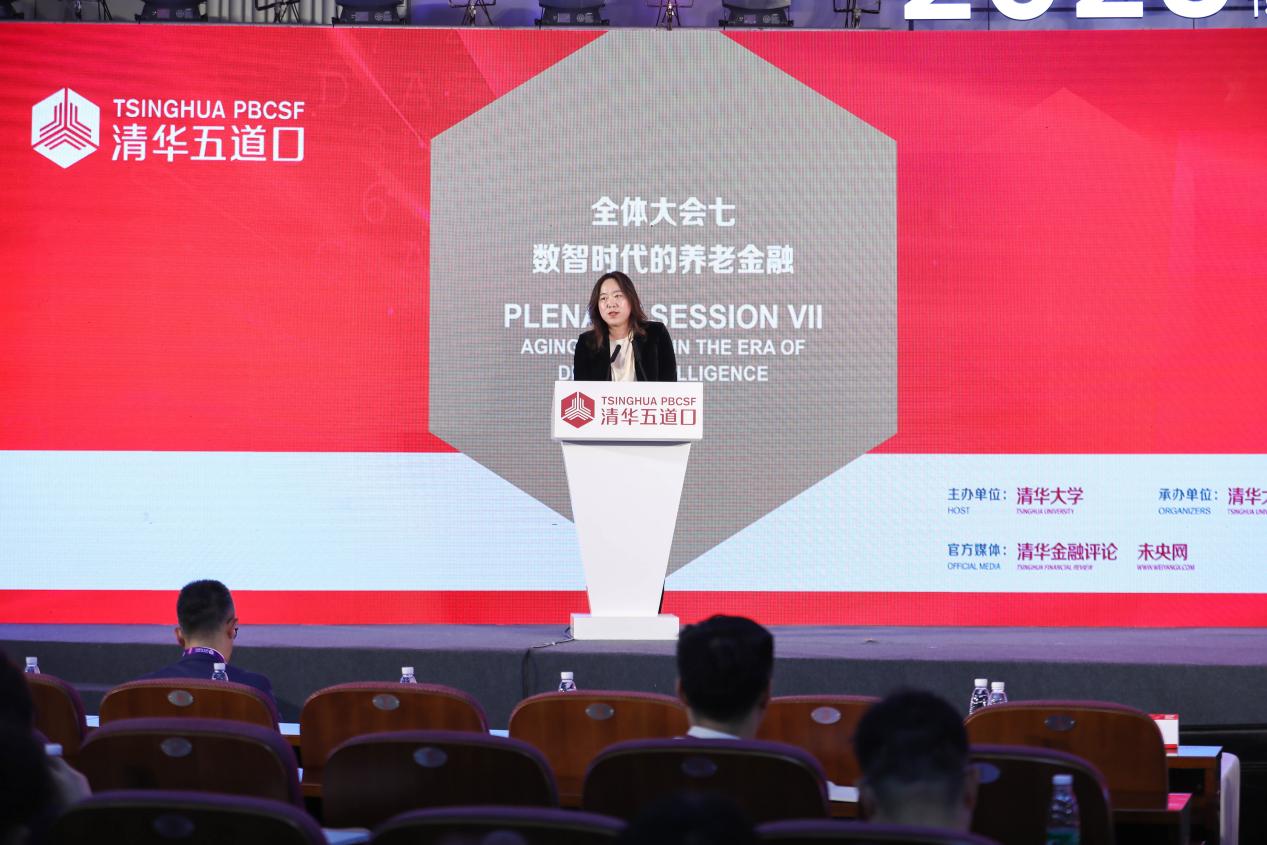
[Sun Danying]
Sun Danying, Vice Chairman of HSBC Insurance (Asia Pacific) Holdings LTD, shared insights into the development of pension finance across multiple dimensions. These aspects included customer needs, experiences derived from overseas markets, digitization, and investor education. Notably, research indicates that nearly half of the mass affluent and high-net-worth individuals incorporate "retirement life planning" into their lifestyle requirements.
Furthermore, the personal demand for pension financial products varies from person to person and evolves with age. China's online wealth management industry is now entering a new phase of development, driven by technological advancements and the rapid growth of investable assets held by users. The integration of wealth management with financial technology has become increasingly profound. Also, investor education plays a vital role in ensuring the healthy growth of the wealth management industry. Financial institutions should fully consider investors' psychological factors when engaging in investor education and formulating policies. Introducing incentive measures such as tax-deferred pension insurance or government-operated pension schemes exclusive to the elderly becomes crucial during the development of the third pillar of pension finance.
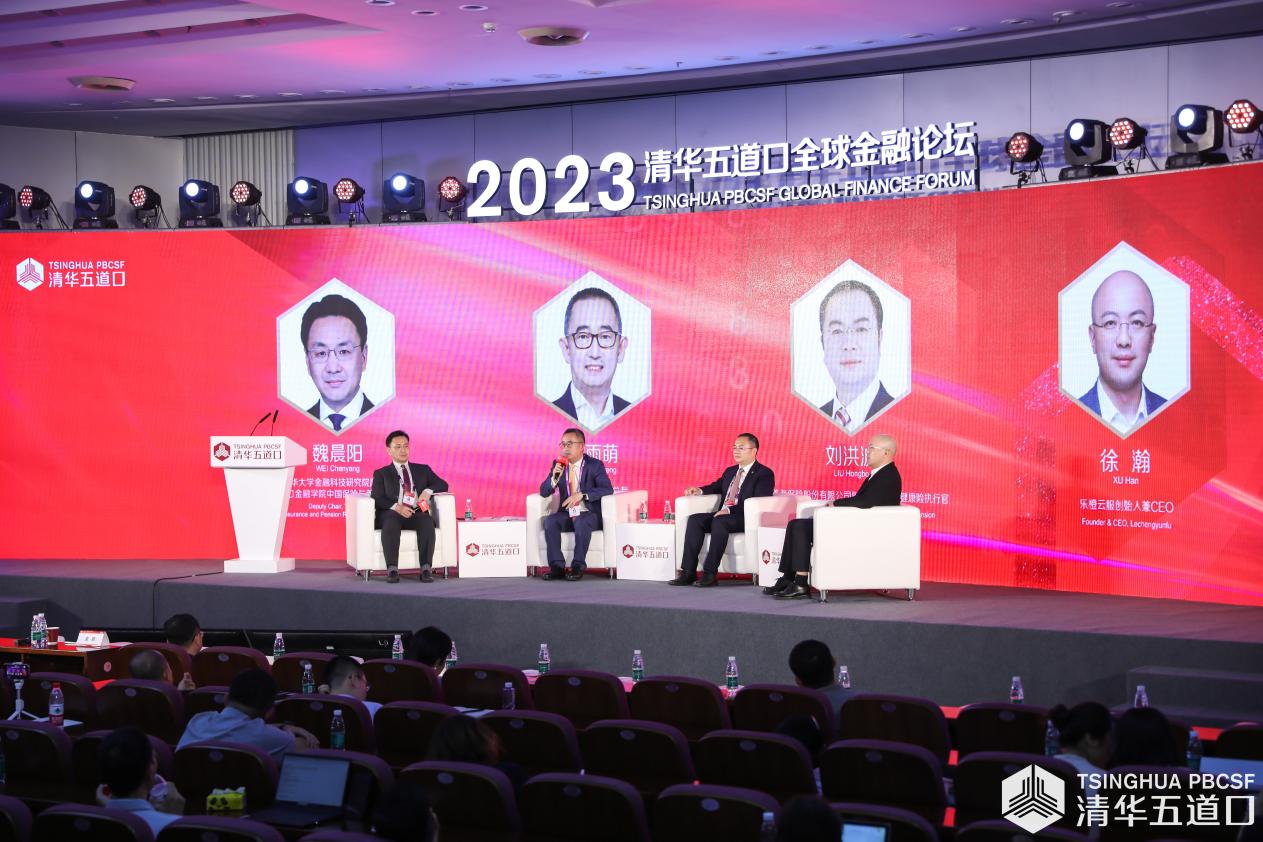
[Discussion Panel ]
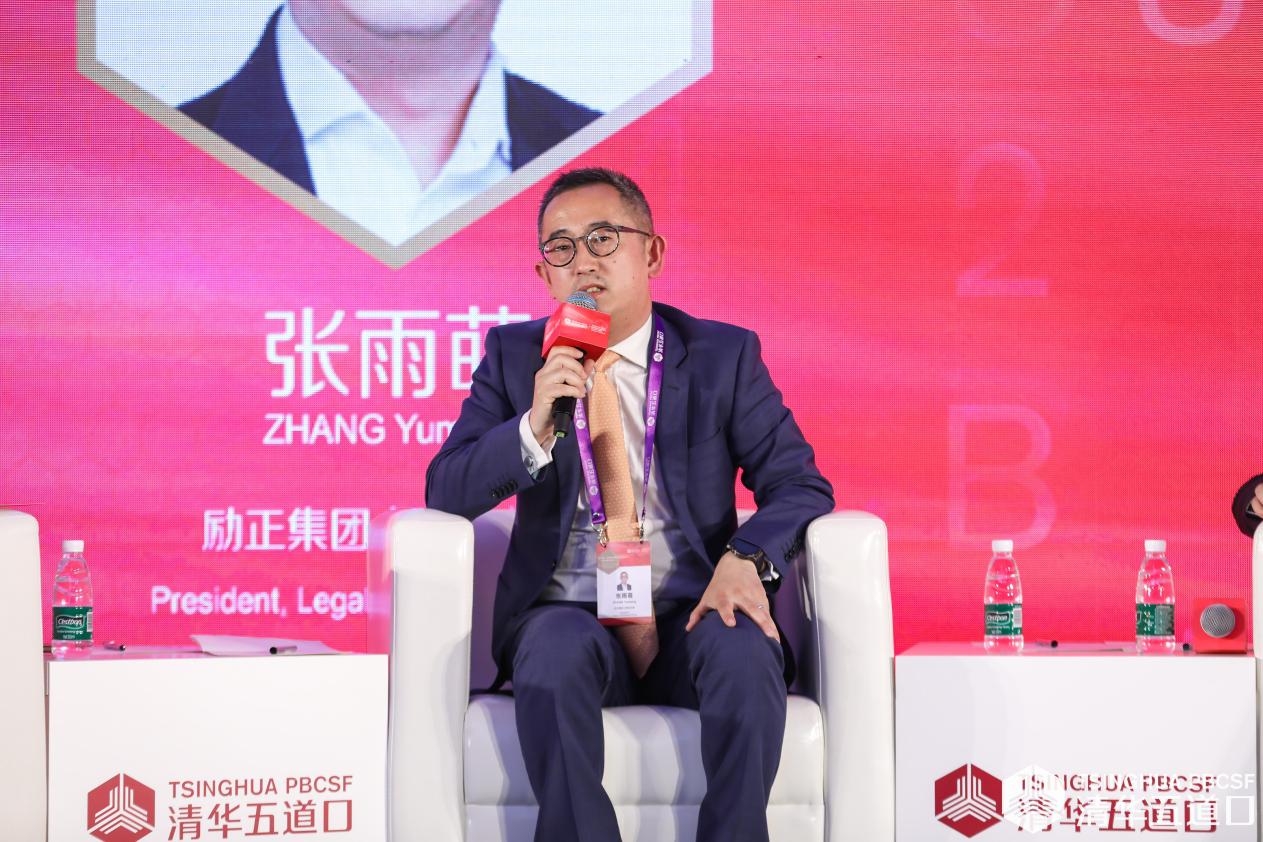
[Zhang Yumeng]
During the panel discussion on "Age-tech empowering an elder-friendly society," participants shared their insights into the development of age-tech and pension finance. Zhang Yumeng, President of Legal & General Group (China), highlighted the significant transformations taking place in the pension asset management industry. With a shift towards delayed and more flexible retirement ages, there is an increasing need for adaptable investment strategies and diversified product portfolios, which directly impact overall investment approaches and product design strategy.
Moreover, as people experiencing longer lifespans, retirees face the task of managing their wealth for up to 40 years, seeking stability, value preservation, and growth. Consequently, longevity risk underscores the demand for protection-oriented products, such as long-term care insurance. To address these requirements, active involvement from pension finance industry participants is crucial, as they must provide comprehensive protection and investment services.
Zhang Yumeng shared significant variations observed in international pension asset management practices. To effectively adapt these practices to the domestic market's unique needs and future development trends, it becomes imperative to transform savings into medium to long-term investments while fully embracing the digital era.
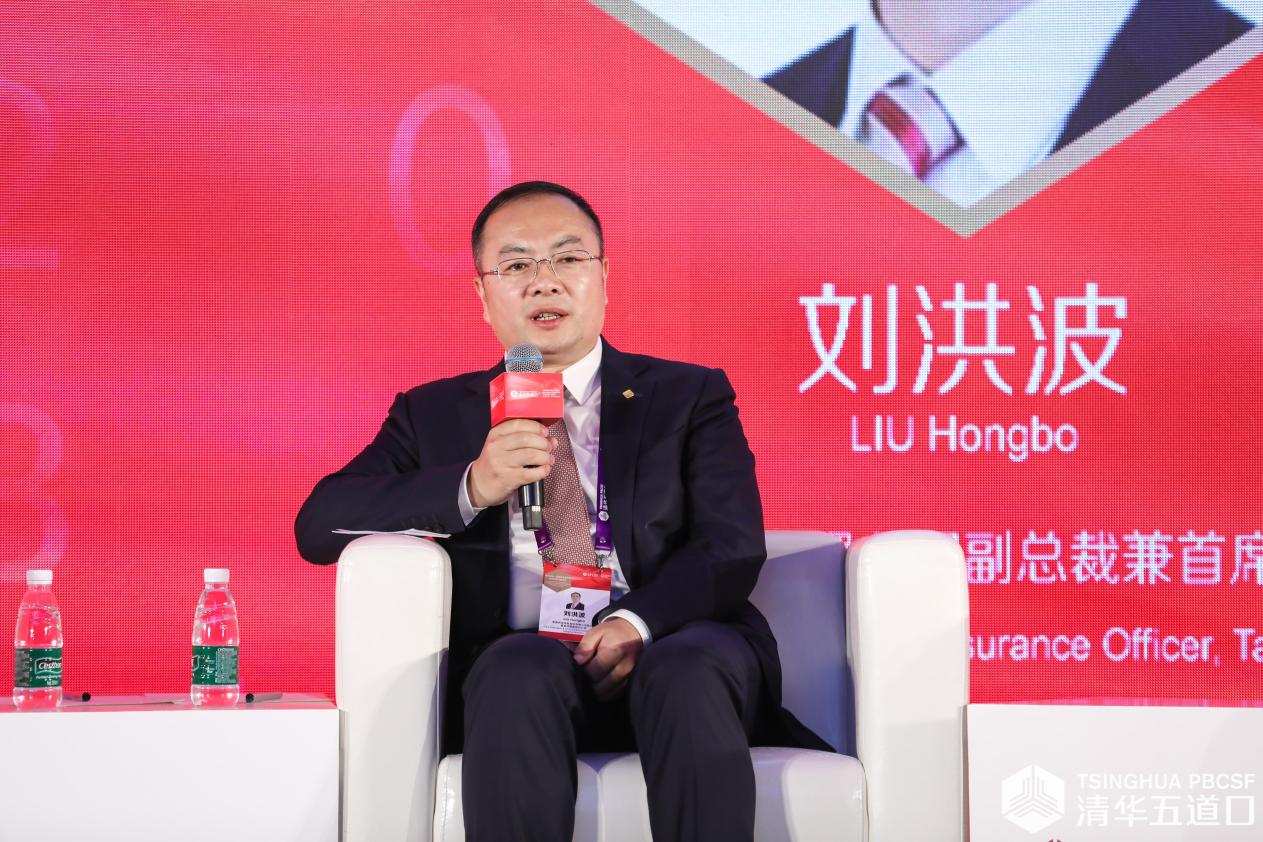
[Liu Hongbo]
Liu Hongbo, Vice President and Chief Health Insurance Officer at Taikang Pension Insurance Co., Ltd., proposed that China’s long-term care insurance market is of great potential to trillion-RMB scale. Based on national disability assessment standards, the proportion of individuals with moderate to severe disabilities, and a coverage level of 70%, the long-term care insurance market is projected to reach a trillion-RMB scale by 2040. In response, the insurance industry is actively innovating its business models by integrating "insurance + medical care and elderly care," effectively contributing to the growth of the elderly care service industry in terms of funding mechanisms and services.
From the perspective of funding mechanisms, three distinct forms of long-term care insurance have emerged: commercial long-term care insurance, the transformation of life insurance liabilities into long-term care insurance liabilities, and the exploration of inclusive long-term care insurance. Major insurers in China are making substantial investments in the development of elderly care communities.
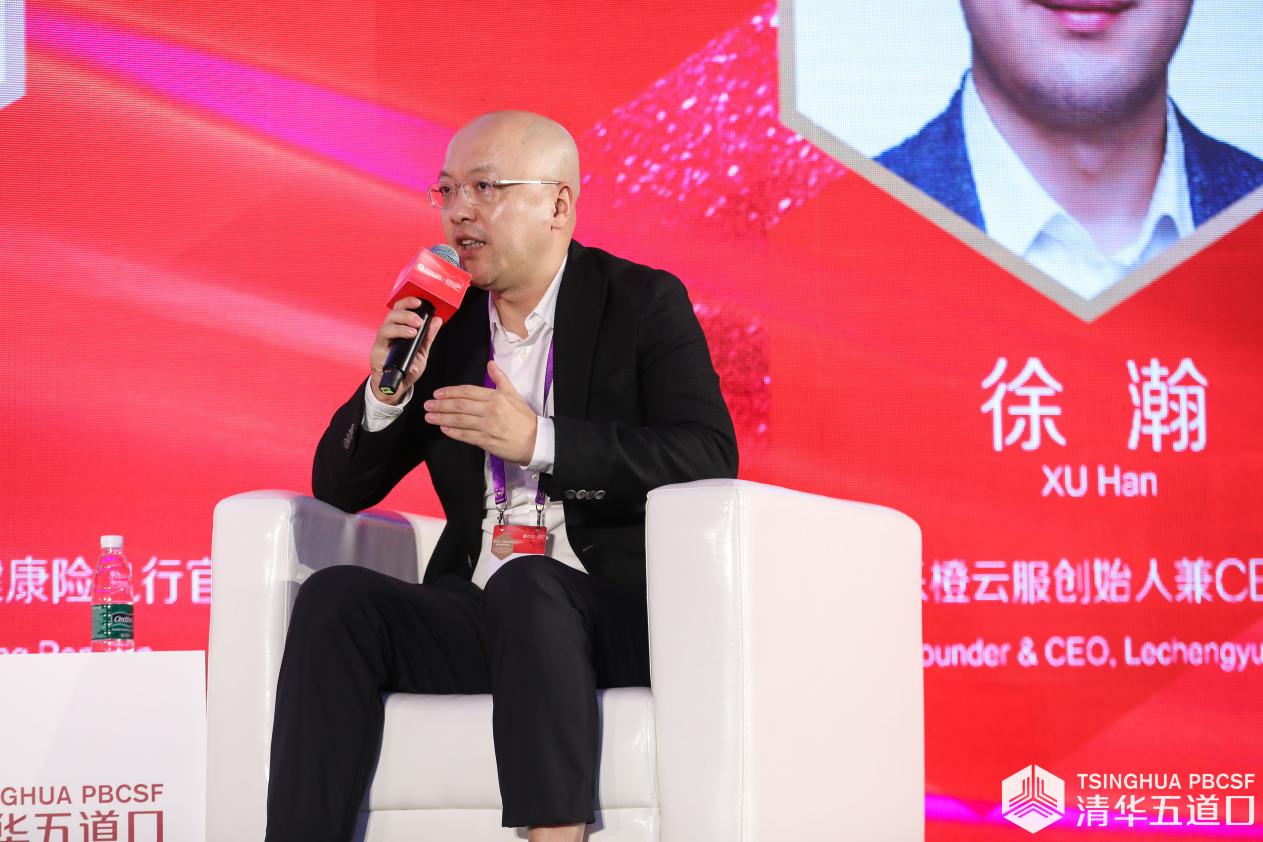
[Xu Han]
Xu Han, Founder and CEO of Lechengyunfu, introduced that consumers have a weak perception of the existing forms of insurance products, a significant investment is required in the design and innovation of insurance products. An innovative practice in long-term care insurance is to promote care responsibilities through the dynamic changes in utility usage by the elderly at home, detected by smart meters. It is worth exploring how to incorporate innovative technology services into insurance responsibilities and value-added services, making insurance product payments visualized and perceptible. There is great potential in eldercare technology, such as using technological tools to address the care of Alzheimer's patients, applying generative AI technology to enable lifelike conversations, companionship, and psychological comfort for the elderly.